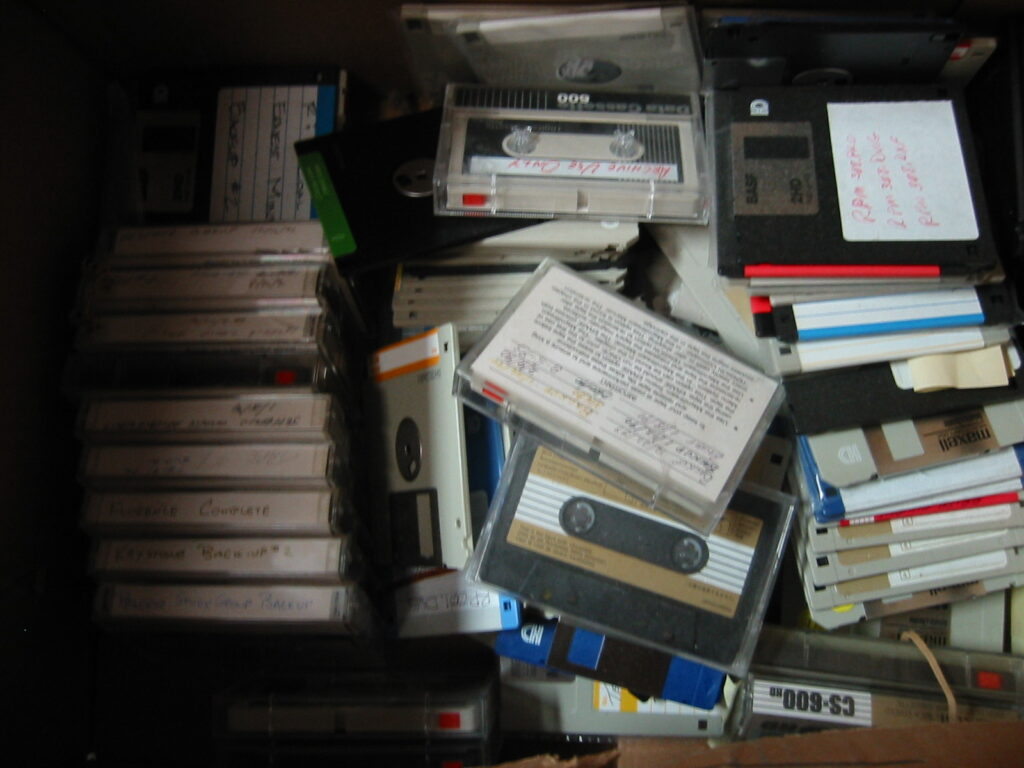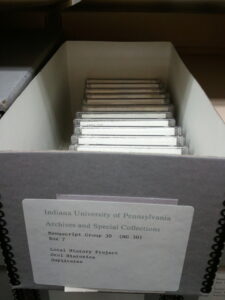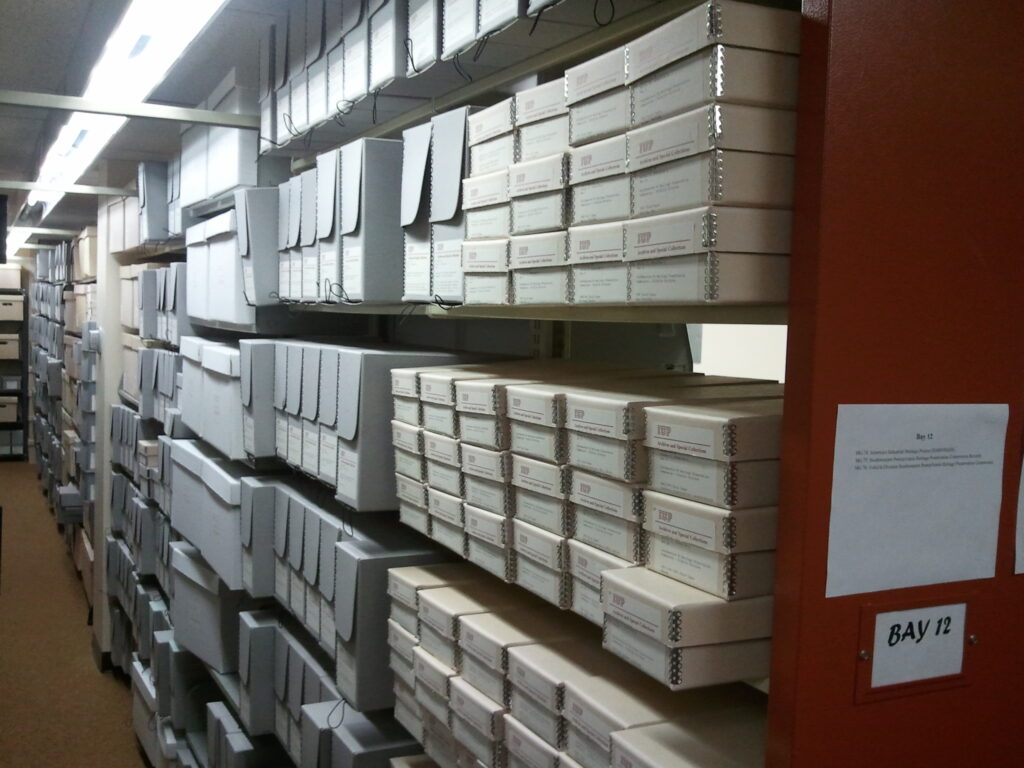This article appeared in the Volume 4, Issue 3 Winter 2024 issue of the Appalachian Curator. Click here to view a PDF of the full issue.
By Dr. Harrison Wick, Special Collections Librarian and University Archivist
Technological obsolescence and “file not found” are the prospects for many collections if digital conversion is not carried out during the lifecycle of electronic records, data files, and especially audio and video recordings. After conducting an in-house survey of the Special Collections and University Archives at Indiana University of Pennsylvania (IUP) in Indiana, Pennsylvania, it was determined that record group and manuscript group collections contained more than 5,000 audio cassette tapes and 2,500 video cassette tapes, which does not include reel-to-reel tapes and other

formats. That number of audio and video cassette tapes does not include electronic files that were stored on disk including 3.5 and 5.25 inch floppy, or CD and DVD, which are next on the obsolete media list. Without constant vigilance and the timely conversion of audio, data, and video files to modern formats, recordings and information stored on obsolete media can become lost in time as media continues to deteriorate, and software and technology evolve.
There are multiple solutions to these concerns, including planned conversion of media formats to the latest technology. This can be accomplished inexpensively in-house for specific formats, such as 3.5 inch floppy disk, CD and DVD, audio cassette tape, and video cassette tape (VHS). The problems that can be encountered is the available technology, finding a functional audio cassette player or video cassette player (VCR) can be challenging. However, it may be advantageous to send larger collections of media to an outside vendor who would create MP3 and WAV audio files and MP4 video files. The biggest concern is knowing what type of data files will be accessible in the future, current data files including .doc, .docx and .pdf may become obsolete in a relatively short period of time. The secret is public awareness, be aware of the different types of media stored in your collections, and plan to convert these formats before it is too late. There are many outside vendors who can accomplish the digital conversion of obsolete media, but consider the expense of sending 7,500 tapes. In many cases, grant funding and donations can be obtained to help offset the cost of digital conversion for specific projects. However, writing and receiving grant funding can be challenging and a long-term process.

A case in point is the Dr. James Dougherty Collection (Manuscript Group 176) which contains many audio and video recordings of conferences, interviews, and documentaries. These recordings include the history of IUP, social movements, and particularly labor history in the Appalachian
Region. This collection contains more than 100 audio and video recordings in a variety of formats that are in the process of being digitized and converted to new MP3 and WAV audio files and MP4 video files. Eventually, all of these new recordings will be accessible as part the Dr. James Dougherty Collection. In an ideal situation, these audio and video recordings could be downloaded as part of an institutional repository, but these platforms can be expensive to maintain. An inexpensive solution is to make these recordings available as part of the IUP Special Collections and University Archives website.
The secret is vigilance, when accepting “new” archival donations, it is imperative that archival repositories be aware of obsolete media formats. Do not be afraid of conducting a survey of existing collections to determine if you have data files and recordings on media formats that must be converted in a timely manner. There is limited time to consider digital conversion. Only then can steps be taken to convert these formats to new digital files in order to save audio and video recordings that may not be available anywhere else.
